Babies usually start talking at about 12 months of age. However, as with many milestones, the exact age may vary from baby to baby. To learn more about language development in babies, we spoke to speech and language pathologists Katie Sterbenz and Carly Tulloch. Read on to learn when babies start saying "mama," how you can help your baby build their vocabulary, and when to seek help.

When Do Babies Say Their First Word?
Babies typically say their first word around 12 months of age. However, there's a range of what to expect, and some babies may start speaking a bit earlier or later.
Communication involves so much more than the number of words a toddler can say. Sterbenz and Tulloch recommend downloading their free communication checklist. This checklist outlines all the other incredible skills your toddler is developing.
First words often emerge from repeated, meaningful interactions with you and other caregivers, Sterbenz and Tulloch say. Some examples include simple words like "mama," "dada," "no," or "bye bye." If a child hasn't started using words by 18 months, Sterbenz and Tulloch recommend consulting a speech-language pathologist for an evaluation.
Learning to Talk: Language Development in Babies
Babies learn language simply by being around others. As Maria Montessori noticed, babies have an absorbent mind that helps them pick up language. When you talk to your baby, you help them learn new vocabulary and understand sentence structure.
Research shows that babies as young as 6 or 7 months can understand some words. Over time, babies learn more and more. By age one, children can understand a lot more.
One of the most helpful things parents can do to help their infant build their language skills is to talk to them. Sterbenz and Tulloch encourage parents to talk to their children even if it doesn't come naturally.
Speech-Language Pathologist Tips for Developing Your Baby's Language Skills Through Talk
Sterbenz and Tulloch offered the following tips for chatting with your baby throughout the day.
1. Narrate Daily Activities: Describe what you're doing, seeing, or feeling as you go about your day. For example, “Now we’re changing your diaper. This wipe might feel a little cold!” “I’m going to put you in your car seat. Let’s get you buckled!”
2. Use a “Parent-ese” Voice: Babies are naturally drawn to the melody of speech. Using a sing-song voice can make talking feel less awkward and more engaging.
3. Read Aloud: Reading aloud is a great way to bond and connect. Go beyond the words on the page and chat about the pictures as well. Reading to your baby creates the chance for your baby to hear new words and sentence structure. We can’t say enough how good it is for their development. Try these Montessori baby and toddler books.
4. Play “People Games”: Simple games like peek-a-boo and pat-a-cake involve repetition and can be a fun way to interact verbally.

How Many Words Should My Baby Know?
By the time your child is 18 months old, they will likely be able to say between 10 and 50 words. Keep in mind that it's normal if only you or others close to your child understand them. Around this time, babies experience an explosion of language. Your baby may learn up to eight words in a day.
The explosion of language typically happens around 18 months of age but may happen before or after. Children achieve milestones at different rates.
For example, one baby may know 50 words by 14 months. Another baby may still be babbling at 16 month old. A 16 month old not talking may not necessarily be a cause for concern depending on the other skills they've mastered. If you're concerned, check with your health professional.
Q and A with Speech and Language Pathologists, Sterbenz and Tulloch
Sterbenz and Tulloch answered some questions from Piccalio's followers. Parents asked about when babies develop language skills and how they can support their little ones.
If you'd like to ask experts in parenting and childhood development a question, follow us on social media.
Question: How can I help a 16-month-old who only babbles or tries to sound out some words?
Answer: Sterbenz and Tulloch
It’s so great you’re noticing what your child CAN do! We encourage parents to meet their children where they’re at, so this is great you’re noticing.
To support your 16-month-old’s language development, it’s important to understand the foundational skills that come before the first words. Babbling is one of them, so that’s great you’re seeing that! In our talking milestone checklist, we share more of those foundational skills.
Here are some things we recommend doing throughout the day:
Model Simple Words: Use clear, simple words during daily routines. Label objects and actions, and use repetitive phrases.
Encourage Imitation: Imitate the sounds and babbles your child makes and encourage them to copy you. Learn more about imitation here.
Expand on Sounds: When your child babbles, expand on their sounds by turning them into real words or simple sentences. So if they say, “ba ba ba”, you can play with a ball or baby and model that word in context.
Read Together: Share picture books and talk about the images, making it a fun and engaging activity.
Question: My 18-month-old still won't say "mama." Is this normal?
Answer: Sterbenz and Tulloch
While every child develops at their own pace, it’s typical that most children can say "mama" or "dada" by 18 months. If your baby isn't using these words yet, it might be worth looking at his overall language development:
Check Other Milestones: Are they making eye contact, responding to their name, following simple commands, or using gestures like pointing or waving? Does your child babble or try to repeat words? These are also important language skills.
Encourage Speech: Engage in activities that promote speech. Try reading, singing, and talking about daily routines.
Consult a Professional: If there are concerns about language development, it’s a good idea to seek advice from a speech-language pathologist. Early intervention is beneficial and can help determine whether or not there is a speech delay, hearing impairment, or another irregularity.
Our Talk Toddler course is a great first step that will help you learn more about what you can do at home. Families never tell us they regret getting the support (In fact, it’s the opposite. They usually wish they would have reached out sooner!)

Question: How can I use playtime to develop my little one's vocabulary and language skills?
Answer: Sterbenz and Tulloch
Playtime is a great opportunity for language development:
Interactive Toys: Use toys that encourage interaction, like blocks, dolls, cars, and toy animals. Talk about what you’re doing with the toys. Children learn by doing and create strong associations between words and actions or objects this way.
Pretend Play: Engage in pretend play scenarios, such as cooking or taking care of a baby doll. Other toy sets such as a farm set can allow for scenarios like feeding a cow in a barn. Use rich and varied language to describe actions and objects.
Songs and Rhymes: Incorporate songs, nursery rhymes, and fingerplays. We love using songs because this slows down language, highlights key words, and involves repetition. Repetitions is key for language learning!
Follow Their Lead: Pay attention to what interests your child and talk about it. If they’re playing with a ball, describe its color, shape, and the action of throwing or rolling it. Following your child’s lead will likely result in them being a more enthusiastic participant. This provides more time and opportunities to learn the words that matter to them.
What to Expect: When Do Babies Start Talking?
As with other milestones such as crawling and walking, babies start talking on their own timeline. Typically, babies start talking when your baby is about 12 months old. Usually, babies start using words one at a time. By the time babies are 2-years old, they may by putting two words together.
A baby's language skills develop at their own pace. While some children speak in complete sentences at two, others take a little longer. If you're concerned about your child's language skills, speak with your child's pediatrician or reach out to a speech and language pathologist.
Sources:
1. BBC
2. WebMD
3. NHS
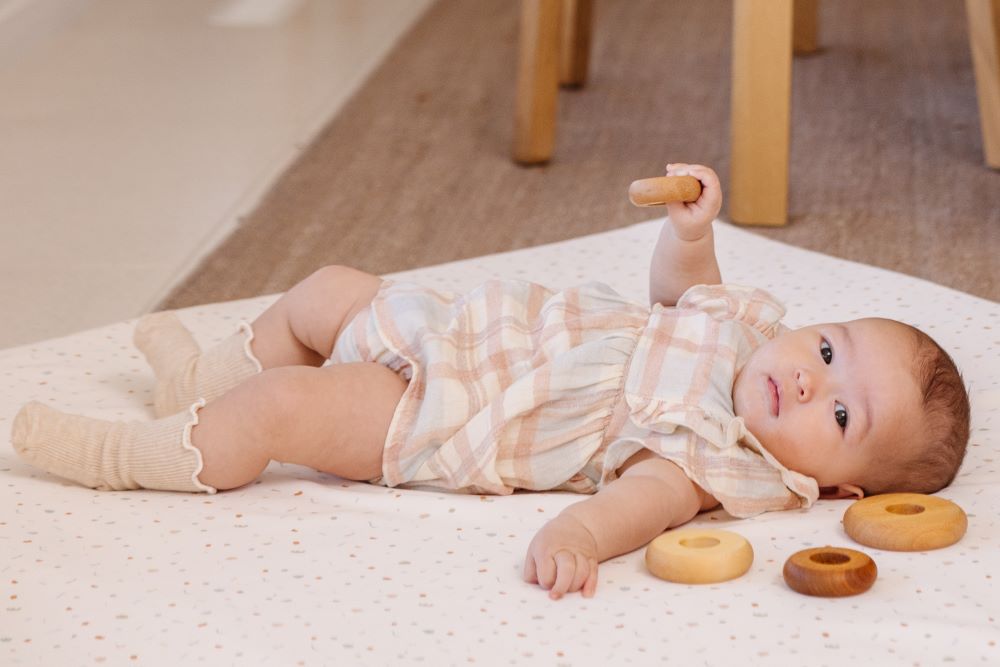

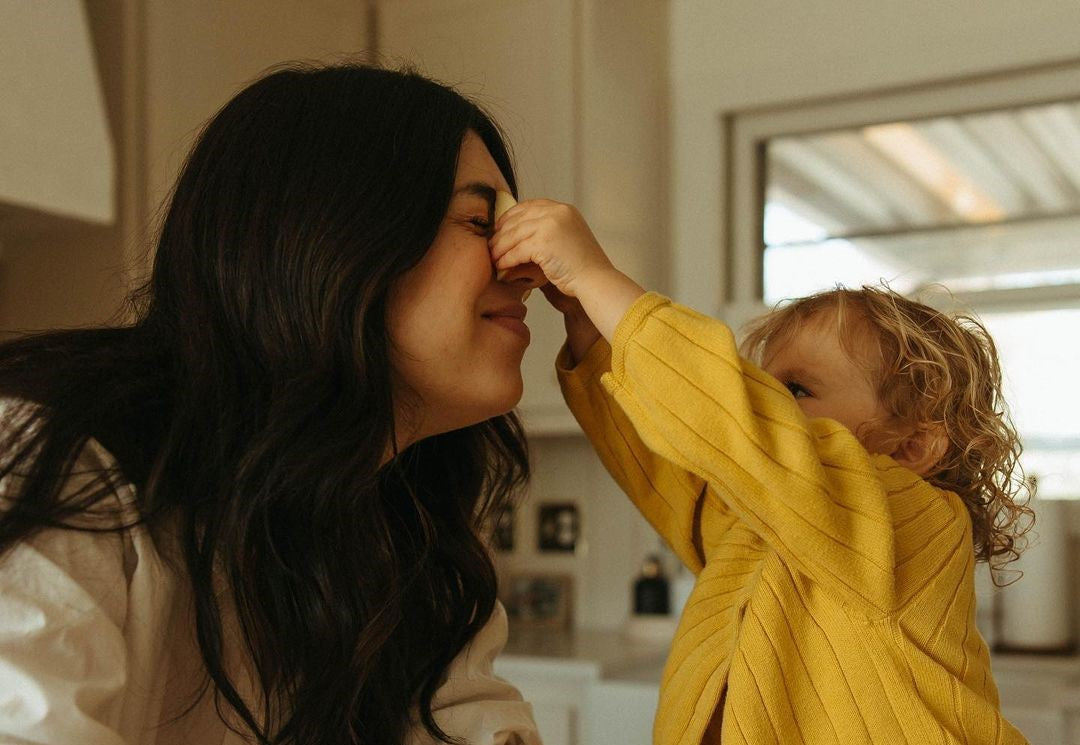
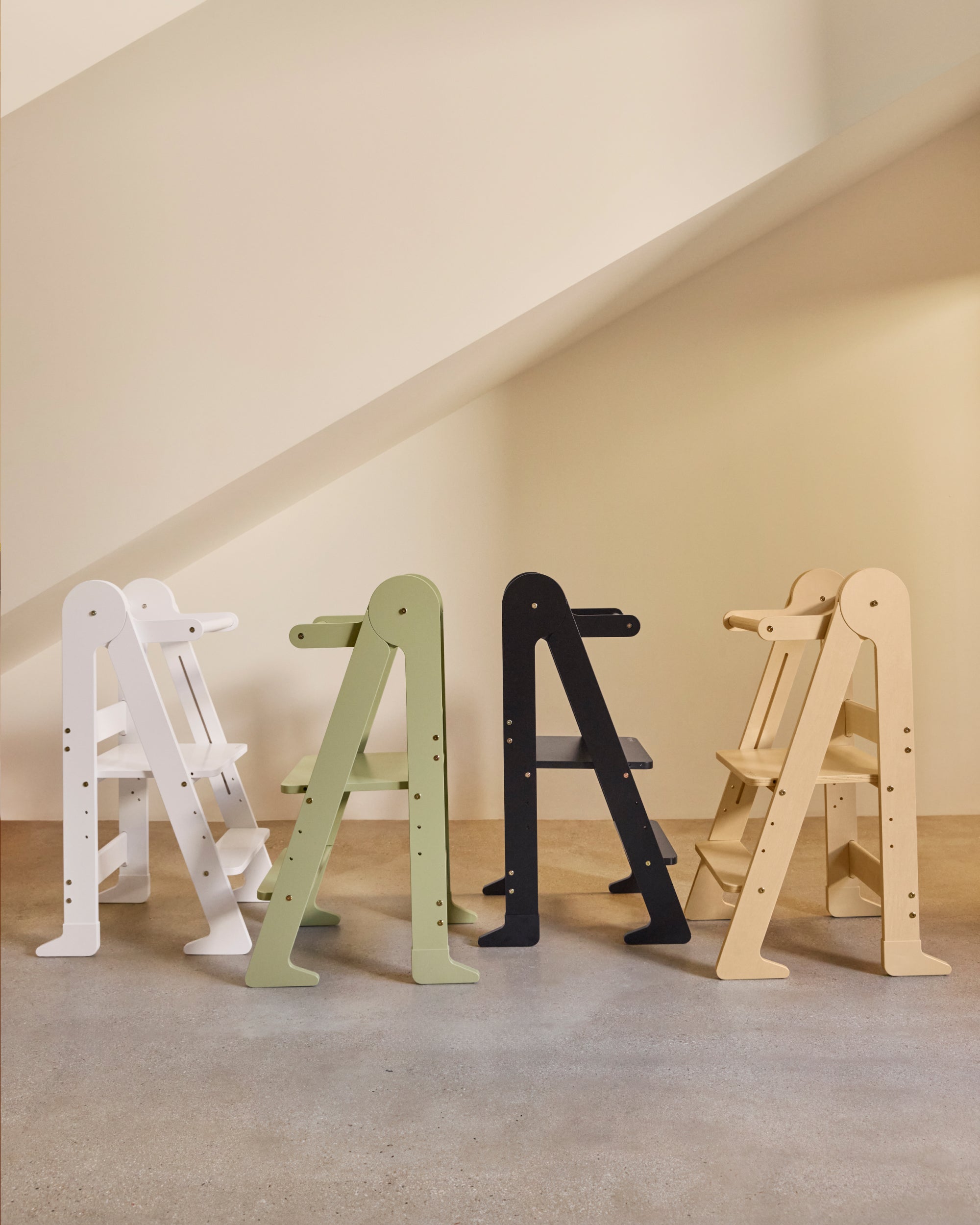
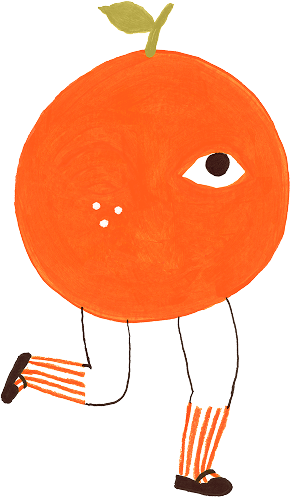
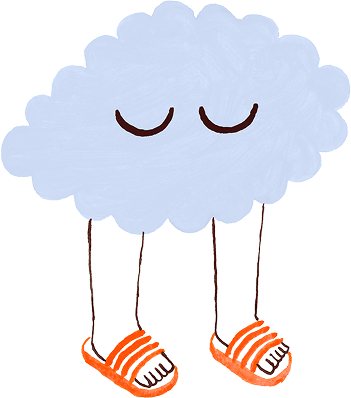
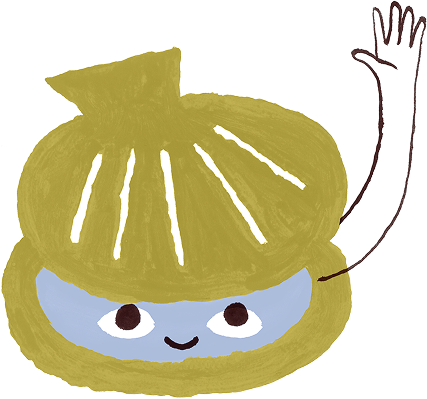
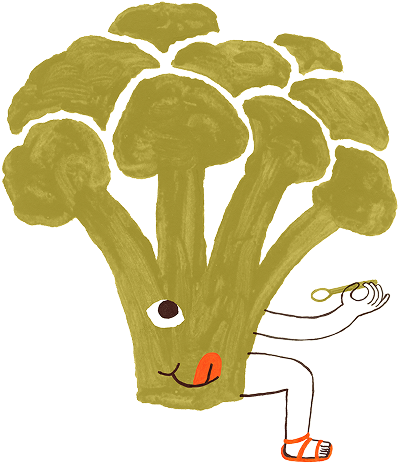
Leave a comment
This site is protected by hCaptcha and the hCaptcha Privacy Policy and Terms of Service apply.